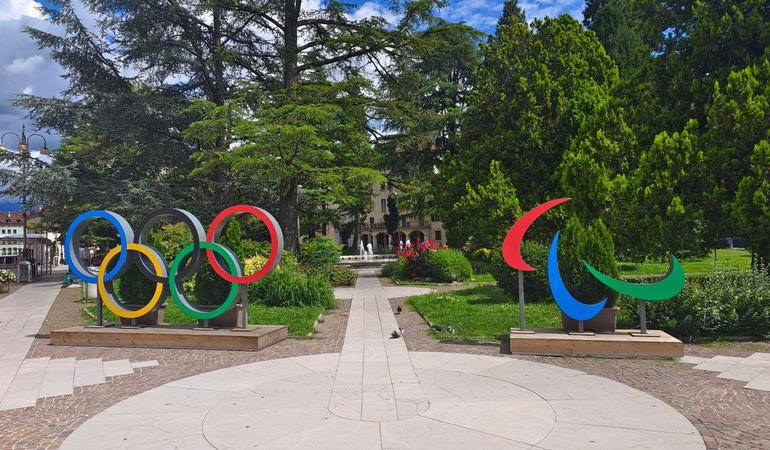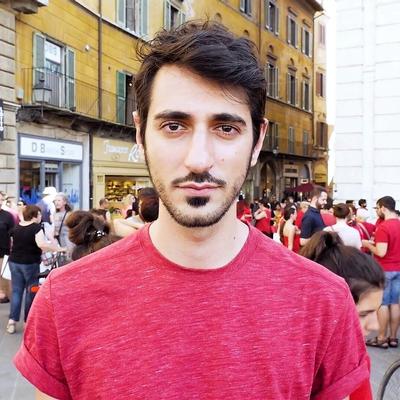
Milano-Cortina. Ecco come verranno spesi i 450 milioni di euro delle paralimpiadi


12 settembre 2023
“Want to get into the drug business? First you have to have a real business". Towards the end of 2019, one of the more than one hundred suspects in Eureka — the largest operation against the Locride cosca to date — recounts how he decided to set up a front company in Belgium. On one wall of the premises, he has hung a huge picture of the panorama of San Luca, at the foot of the Aspromonte. The same photo is used on social media, almost as a brand, to highlight the origins of those who, in his words, are descended from the “mamma” of the 'ndrangheta. It is no coincidence that when the Anti-Mafia Commission of the XV Legislature wrote of a "qualitative leap" since the 1980s, it referred to certain "strategic factors". These included the "capillary diffusion of the clans on all continents" and the "expendability of a kind of "logo", a mark of "quality" and “unquestioned reliability with the partners and organizations involved in the drug trafficking chain".
Read the original article in Italian
Since the 1970s, the villages behind the Aspromonte plateau have been in the news as the hidden theatre of historical kidnappings. Cesare Casella, kidnapped in Pavia in 1988, is said to have spent 743 days in captivity there. Some Bovalino elders, for their part, continue to tell stories about the Paul Getty district, which, according to legend, was built with part of the almost two billion lire paid in ransom for the nephew of the rich American oilman, kidnapped in Rome 50 years ago.
In a report published in 1998, the parliamentary commission explained how this "enormous sum" was used in part to finance the 'ndrangheta's entrepreneurial activities, which were interested in large public contracts and, most importantly, "first in the smuggling of foreign cigarettes and then in the purchase of drugs", to launch what would become the group's core business. In a short space of time, the epochal step of "tertiarisation of the 'ndrangheta" was achieved, which went from being a final and marginal user of the supply chain to being placed on the cocaine routes, entering into direct agreements with the producer cartels.
In order to understand the extent of the phenomenon and the amount of business it generates, we can take as an example the operation coordinated by the District Antimafia Directorate (DDA) of Palermo on 19 July 2023, which led to the seizure of 5.3 tonnes of cocaine "destined to supply the national market", which would have generated approximately 850 million euros for the cosca. The substance was transported on a fishing boat that left from Bagnara Calabra, not far from Reggio Calabria, with one Italian and four foreigners on board. In the investigation files, investigators also report an encrypted telephone number located in the area of San Luca.
The genesis of the investigative activity revolves around two investigations into alleged members of some of the best-known families of San Luca, Bovalino, Africo and Bianco
“I still hear talk of 'ndrangheta farming and, frankly, it worries me a lot”. These words were spoken by the Deputy Prosecutor of Reggio Calabria, Giuseppe Lombardo, at the press conference following the mass arrests of 3 May 2023. Of the 108 precautionary measures carried out in various parts of Europe, many of the suspects are from or still live in Locride. From here, the investigators from Reggio Calabria, Genoa and Milan, coordinated by the National Antimafia Directorate (DNA), in collaboration with European inter-agency groups, have tracked down a structure that has branched out beyond the continental borders and was capable of moving six tonnes of cocaine between May 2020 and January 2022 (the two-year period characterised by the pandemic).
The genesis of the investigative activity revolves around two investigations into alleged members of some of the best-known families of San Luca, Bovalino, Africo and Bianco. In 2017, the focus was on Antonio Callipari, who remained a fugitive until November 2018, when his name was included in the pre-trial detention order of the Dedalo investigation. According to the Milan DDA, he is one of the “ringleaders” of an association linked to the Sanluchesi Nirta “Versu”, a branch of the Nirta Scalzone (known as “La Maggiore”) linked to the Strangio “Janchi” family.
The next phase of the investigation started in June 2019. The circumstantial evidence was enriched thanks to the work of a Belgian agent who infiltrated a group of Calabrians in the Limburg region on behalf of the Federal Prosecutor in Brussels. Just one year later, the Costa operation was launched in the same area, resulting in the arrest of 41 people. Among them was Lucio Aquino, accused of being involved in the importation of around seven tonnes of cocaine seized in the port of Antwerp in October 2019. The Italo-Belgian trafficker was in contact with members of the Gulf Clan (Los Urabeños), a Colombian paramilitary organisation that "regrouped elements of other narco-terrorist organisations that took control of the cocaine market in Colombia after the fall of the historic Medellin and Cali cartels".
The Italian antimafia association Libera sheds light on crime in ports: "Politics still timid"
The synthesis of these activities makes it possible to trace "three maxi-associations dedicated to international drug trafficking". It tells how the Nirta, nicknamed “Versu”, managed to expand into Brazil thanks to the drug trafficker Vincenzo Pasquino, who was arrested in May 2021 along with “Tamunga” Rocco Morabito, the head of the Africo clan, with whom he shared a fugitive status after escaping conviction by the Court of Turin in the Cerbero trial, which focused on the existence of a locale — i.e. a territorial structure of the “Versu” — between San Giusto Canavese and Volpiano.
After the arrest of the Italian drug traffickers Patrick and Nicola Assisi in São Paulo, Pasquino is said to have been able to expand his business and become an intermediary in the trafficking of Antonio Romeo, known as "Cetto", "an important supplier of cocaine who has been operating in Brazil for years". The network linked to Nirta-Giampaolo-Romeo, according to the GIP of Reggio Calabria, was able to "take advantage of direct contacts with suppliers in South America" to bring "enormous quantities of drugs to Italy and Europe at very competitive prices", around 7,000 dollars per kilo, to be resold in Calabria in a short time for more than 30,000 euros.
The organisation relied on a "team of corrupt dockworkers responsible for collecting and exporting the cocaine" from Gioia Tauro. Between May 2020 and January 2022, around four tonnes of drugs were moved between Italy, Holland and Belgium, thanks to the use of heavy vehicles or "through the involvement of Chinese criminal organisations operating between Rome, Milan and Naples, with bases also in Dubai, specialised in carrying out 'pick-up' operations". The profit was approximately 23 million euros.
The other group, the Mammoliti “Fischiante” of Bovalino, allegedly operated through “logistical bases (and not real branches of the Cosca, ed.) located in various parts of Italy”. Their involvement in the drug business has been documented since 2015 with the Kaleos operation. The convictions of the then rulers Francesco and Domenico Mammoliti were followed by the transfer of power to his brother Giuseppe, who "maintained contact with the group's main supply channels", and his nephew Sebastiano (a minor at the time of the events).
According to the public prosecutor's office of Reggio Calabria, the group "followed the principles and methods of the 'ndrangheta", as happened on 17 July 2020 with the murder of Fabio Catapano, accused of having stolen 110 kilos of cocaine from a warehouse in Rome. It was Giovanni Nesci who killed him in order to “save his honour” by protecting himself in the eyes of the clan, and who tried to mislead the investigators by claiming a crime of passion.
The investigators follow the money to France, Belgium, Portugal and Germany, which, according to Stefano Nirta, is "the best of all" thanks to less stringent controls and a favourable tax regime
Abroad, “la mamma” is a matter of reputation. "Go to YouTube to see who they are," is the voice of one of the suspects. "Do you know Duisburg? Seven people in my family were murdered for stupid reasons, because of a carnival prank 20 years ago".
On 10 February 1991, some boys related to the Nirta-Strangios had thrown eggs at the Arci club in Corso Alvaro, run by the Pelle-Vottari family. The episode was reconstructed during the Fehida trial by the magistrate's assistant, Rocco Mammoliti: "A fight broke out and when the boys were about to return to the car, Antonio Vottari fired", killing Francesco Strangio and Domenico Nirta.
He was ordered to leave San Luca, but having ignored the dictates of the rival clan, he was finally killed on the side of the SS 106 on 25 July 1992, at the behest of Antonio Strangio. The incident sparked a massacre in the streets of the town. The following year, an apparent ceasefire was declared, which lasted until 2005. The boss Francesco Pelle, known as "Ciccio Pakistan", was attacked at his home in Africo on the day his son was born, and he took his revenge with the so-called Christmas massacre of 2006. The commando's target was Giovanni Luca Nirta, but it was his wife, Maria Strangio, who died.
This episode will trigger the massacre that occurred on August 15, 2007, just outside the Da Bruno restaurant in Duisburg, where an 18th-birthday celebration had just concluded. According to reconstructions, the possible affiliation of Tommaso Venturi, one of the six victims, played a role. Even families not involved in the feud “benefited” from the bloodshed. The Giorgi "Suppera" took over part of the management of the Strangio "Fracascia" in the main house, while another branch of the clan, the "Boviciani", established itself in southern Germany — according to the Platinum investigation of the DIA — and founded its own branch in the Baden-Württemberg region. In February 2023, the Constance court handed down a historic verdict, convicting one of the alleged members, Salvatore Giorgi, of "aiding and abetting the 'ndrangheta".
"I know that in Duisburg most of the pizzerias were controlled by families from San Luca". On 23 February 2021, the judicial collaborator Giorgio Basile explained to the investigators the mechanisms for the recycling of dirty money. "Pizzerias and restaurants in Germany", he says, "are a safe and easy way to launder the proceeds of drug trafficking, both in the purchase phase (often in cash, ed.) and in the management phase [...] aimed at achieving a low legal turnover in order to put 'dirty money' into budgets".
The investigators follow the money to France, Belgium, Portugal and Germany, which, according to Stefano Nirta, is "the best of all" thanks to less stringent controls and a favourable tax regime. Giovanni Luca Nirta's brother and brother-in-law, Sebastiano Romeo, “the man in charge” despite being in prison, is considered to be the “head of the association.” He had decided to take over a company owned by the Giampaolo “Russello” family, investing in the German town of Saarlouis to secretly run the Bellitalia ice-cream parlour. In this way, he was able to provide work for some of his relatives, and he gained "great authority within the group". It was his initiative, for example, to hire a hitman to kill Pasquino if he decided to cooperate with the law. It was rumored that the broker had written a letter expressing fear of the Brazilian prison.
The map drawn up by the public prosecutor's office leads to the confiscation of movable and immovable assets totalling 25 million euros. The nephew of boss Antonio Pelle “Gambazza”, Domenico Giorgi, nicknamed “Berlusconi”, had invested in Portugal. He was able to build a business that was frequented by footballers, show business personalities and even the President of the Portuguese Republic, Rebelo de Sousa.
In Menton, in the heart of the Côte d'Azur, there is instead the restaurant La Voglia, which, according to the French authorities, is run by the Aurora company, whose hidden partner — and director since April 2022, following the generous donation of majority shares — is Vincenzo Giorgi. Investigators accuse him of having imported hundreds of kilos of cocaine on four occasions. Excluding these transactions, Sanluchese is said to have had no assets between 2000 and 2021.
The company can be traced back to two other individuals: Michele Di Piano and Giuseppe Scidone. The French police's report on the latter was taken up by the investigation in Genoa, which led to a trial that proved the roots of certain organised groups from San Luca in Valle d'Aosta. Scidone turned out to be a kind of intermediary between the world of Freemasonry and the Mafia underworld. In fact, after attempting to create a new obedience to which the Aosta Lodge belonged, he is said to have set up a club on the French Riviera "whose official purpose was to help Italians in France, but in reality it was intended as a cover for a Masonic Lodge of Italians on the other side of the Alps".
Complex conspiracies, reconstructed at this preliminary stage thanks to international judicial cooperation, which, according to the prosecutor of Reggio Calabria, Giovanni Bombardieri, is “the only means of combating a crime that no longer knows borders”.
La tua donazione ci servirà a mantenere il sito accessibile a tutti
La tua donazione ci servirà a mantenere il sito accessibile a tutti